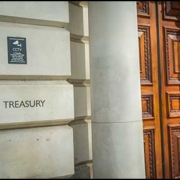January saw a huge collection of security updates
Security patches were issued for patches for iOS, Chrome, Windows, Apple, Firefox and more.
Here’s a short summary but you can find out more on this in Wired here
Apple has released iOS 16.3 along with a new feature that allows you to use security keys as an extra layer of protection for your Apple ID.
Google Chrome has fixed 17 vulnerabilities in the browser and Google Android has posted a number of patches for Android devices in its Android Security Bulletin. It also has fixes for Pixel and Samsung Galaxy devices.
Microsoft has also issued 98 security patches and Software firm Mozilla has released important updates for its Firefox browser, the most serious of which have been the subject of a warning by the US Cybersecurity and Infrastructure Security Agency (CISA).
There are many more fixes and updates included in the article and for the sake of your business security it is worth doing thorough review of whatever systems you use.












